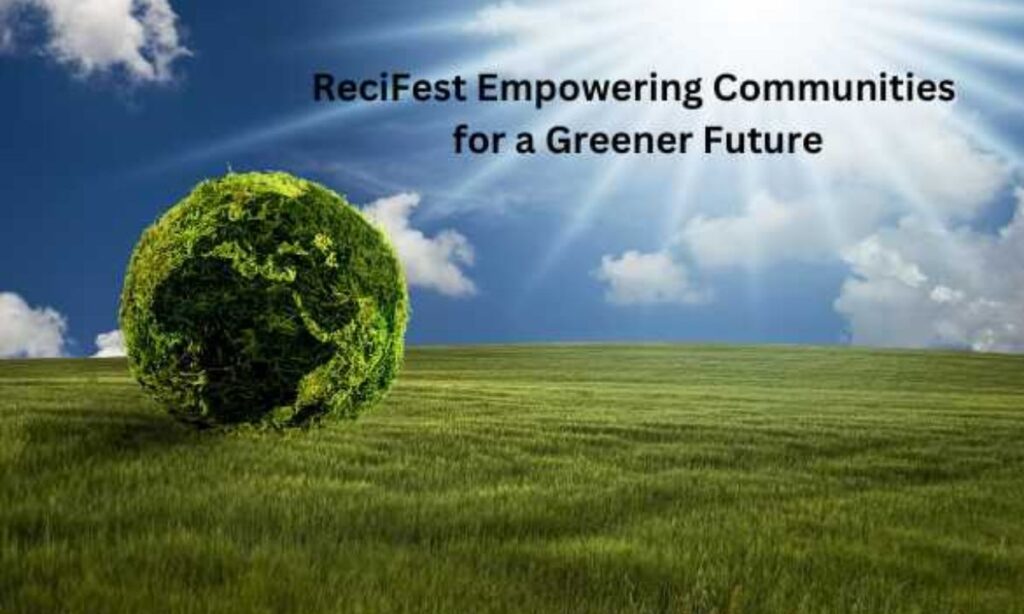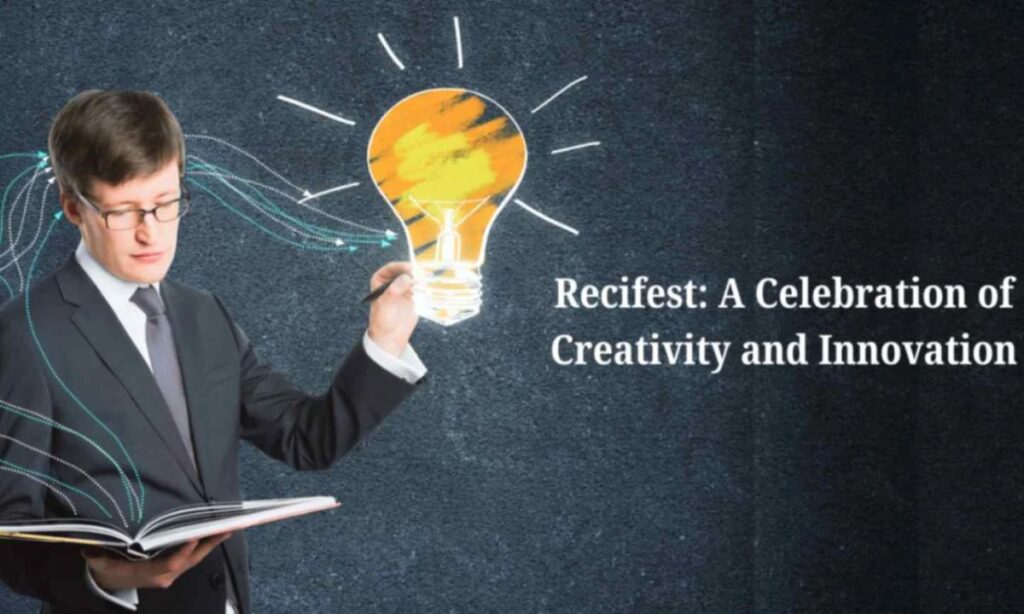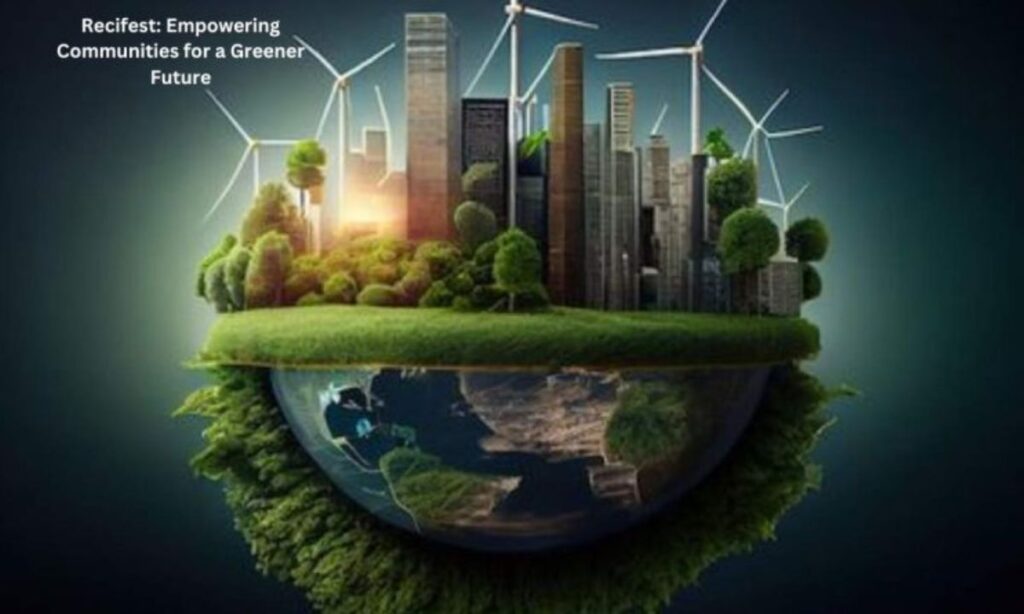ReciFest is a movement that helps communities become more environmentally conscious. This initiative focuses on recycling and sustainability. It brings people together to learn, share, and act. In this article, we will explore the origins, mission, experiences, and impact of ReciFest.
The Genesis of ReciFest

ReciFest did not happen overnight. It is the result of many years of effort. Communities around the world recognized the need for change. They saw that environmental solutions must come from the ground up.
From Idea to Movement
ReciFest began in 2018. Dr. Maya Greenwood, an environmental activist, founded it. The first event took place in Portland, Oregon. It started as a small recycling drive. Soon, it grew into a larger celebration of sustainability. People loved the idea and wanted more.
The ReciFest Mission
ReciFest has a clear mission. It aims to educate communities about sustainability. It focuses on two main goals:
- Teaching people about recycling and upcycling.
- Encouraging individuals to take action for a greener future.
The ReciFest Experience
ReciFest is not just about recycling. It is a vibrant festival. It brings communities together. Participants celebrate sustainability through various activities.
A Festival of Sustainability
Each ReciFest event transforms public spaces. Parks and school grounds become eco-villages. These venues are filled with learning opportunities. People can explore and engage with sustainability.
Interactive Workshops
Workshops are a key feature of ReciFest. Participants can join hands-on sessions. Topics include:
- Creative upcycling techniques
- Composting for urban dwellers
- Making eco-friendly household products
- Energy conservation strategies
These workshops empower people with practical skills.
The Great Recycling Challenge
A highlight of ReciFest is the Great Recycling Challenge. Teams compete to sort recyclables correctly. This fun challenge reinforces recycling practices. It builds community spirit and encourages teamwork.
Community Empowerment Through Education
ReciFest believes that knowledge is power. Education is at the heart of its mission. By providing accessible information, ReciFest empowers individuals.
Youth Leadership Programs
ReciFest places a strong emphasis on youth. The Youth Eco-Leaders program started in 2020. It offers mentorship and training to young people. This program helps foster future sustainability advocates.
Bridging the Knowledge Gap
ReciFest aims to make complex topics simple. It provides multilingual resources. This ensures everyone can access sustainability education. Culturally sensitive programs reach diverse audiences.
Read This Blog: Politicser Pepperboy: The Spicy Voice Of Modern Politics
The Impact of ReciFest
Since its start, ReciFest has had a significant impact. It has grown from a local event to a national movement.
By the Numbers
ReciFest has impressive statistics:
- Over 500,000 participants across 50 cities.
- More than 2 million pounds of recyclables collected.
- 10,000+ trees planted through ReciFest initiatives.
- A 30% average increase in community recycling rates after events.
These numbers show the movement’s success.
Success Stories
Transforming Oakdale
In Oakdale, California, ReciFest-inspired programs led to a 40% reduction in landfill waste in just one year. The community’s composting initiative has become a model for other towns.
Urban Renewal in Detroit
ReciFest’s 2022 event in Detroit ignited a city-wide movement. Vacant lots turned into community gardens. This initiative beautified neighborhoods and provided fresh produce to local food banks.
The Technology Behind ReciFest
ReciFest uses technology to enhance its reach. The movement embraces modern solutions.

The ReciFest App
Launched in 2021, the ReciFest app is a valuable resource. It helps participants year-round. Features include:
- A recycling guide with AI image recognition.
- Listings of local sustainability events.
- A personal carbon footprint tracker.
- Community forums for sharing tips and stories.
The app keeps users engaged and informed.
Virtual ReciFest
When the pandemic hit, ReciFest adapted quickly. It created a virtual platform. This allowed communities to join online workshops and eco-challenges. Participants could take virtual tours of recycling facilities. The digital presence expanded ReciFest’s reach.
Partnerships and Collaborations
ReciFest thrives on partnerships. Collaborations with various stakeholders boost its effectiveness.
Corporate Sponsorships
Many corporations support ReciFest. They recognize the movement’s positive impact. Companies like GreenTech Industries provide funding. Their sponsorship aligns them with sustainability efforts.
Government Collaborations
ReciFest collaborates with local and state governments. These partnerships help integrate programs into wider environmental efforts. They lead to policy changes and increased funding for recycling initiatives.
Academic Alliances
Collaborations with universities have been fruitful. Research projects measure ReciFest’s long-term impact. These studies refine the approach and improve outcomes.
Challenges and Solutions
Despite its success, ReciFest faces challenges.
Overcoming Skepticism
Some communities are skeptical about recycling programs. ReciFest tackles this through education. It showcases successful initiatives to build trust.
Adapting to Diverse Communities
ReciFest understands that one size does not fit all. It developed a flexible model. Local organizers can tailor events to their community’s needs.
Securing Long-Term Funding
Long-term funding is crucial. ReciFest diversifies its funding sources. This includes corporate sponsorships, grants, and individual donations.
The Future of ReciFest
The future looks bright for ReciFest. Exciting developments are on the horizon.

Global Expansion
ReciFest plans to go international. Pilot programs will launch in Europe and Asia in 2024. This expansion aims to spread sustainability practices worldwide.
ReciFest in Schools
A new initiative will bring ReciFest principles to schools. Educators will develop sustainability-focused lesson plans. This will help instill eco-conscious habits in young minds.
Advanced Technology Integration
Future events will incorporate augmented reality. Participants will visualize the impact of their recycling efforts. This technology enhances engagement and learning.
Also Read This Blog: Pretty Lifestyle To Canada As A Panel Beater
How to Get Involved?
Community involvement is key to ReciFest’s success. Here are ways to participate:
- Attend a ReciFest event in your area.
- Volunteer as an organizer or workshop leader.
- Download the ReciFest app and engage online.
- Implement ReciFest-inspired initiatives in your community.
- Sponsor a ReciFest event or program.
Getting involved is easy and rewarding!
Frequently Asked Questions
What is the main goal of ReciFest?
ReciFest aims to empower communities to adopt sustainable habits and make environmentally conscious decisions.
Who can attend ReciFest?
ReciFest welcomes people of all ages, including families, students, and local businesses.
What activities are typically held at ReciFest?
Activities include recycling workshops, eco-friendly product exhibitions, DIY projects, and educational seminars.
How can I get involved with ReciFest?
You can attend events, volunteer, download the app, or sponsor programs.
Is there a cost to attend ReciFest events?
Most events are free or have a minimal entry fee to ensure accessibility for all.
Conclusion
ReciFest is more than a festival; it’s a movement for change. It empowers communities to take action for a greener future. Through education, technology, and collaboration, ReciFest is making a real difference. As environmental issues grow, initiatives like ReciFest provide hope and guidance. Join ReciFest today. Be part of a solution for a sustainable tomorrow. Together, we can create a world where every day is Earth Day.
Tech innovator and digital explorer Ellia leads TechSloby, bringing cutting-edge insights to fellow enthusiasts. With a passion for demystifying complex tech concepts, she bridges the gap between innovation and understanding.



